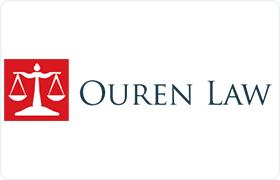Cowiche Criminal Lawyer, Washington, page 3
Sponsored Law Firm
-
 x
x

Click For More Info:
-
Ouren Law
4101 South Union Street Kennewick, WA 99337» view mapCriminal Defense Dedicated. Straightforward. Tough.
With more than a decade of experience, Attorney Ouren has helped many clients achieve successful results in their family law and criminal law matters.
800-971-6601
Bryan G Gillihan
Traffic, Family Law, Criminal, Civil Rights
Status: In Good Standing Licensed: 22 Years
Jeffrey Brian West
Defense Contracts, Traffic, Federal, Criminal
Status: In Good Standing Licensed: 35 Years
Charles Henri Dold
Defense Contracts, Litigation, Criminal
Status: In Good Standing Licensed: 46 Years
 Kimberly Ouren Kennewick, WA
Kimberly Ouren Kennewick, WA Practice AreasExpertise
Practice AreasExpertise
